Diplomacy in a complex world

Diplomacy, guided by foreign policy, is increasingly challenging in a world rife with persistent conflicts. Yet, peace, the alternative to war, hinges on effective diplomacy. Sir Ernest Satow defined it as "the application of intelligence and tact to the conduct of official relations between independent states." Others describe it as managing international relations through negotiation and skilful interaction.
Modern diplomacy must adapt to the rapid pace of technological advancements while managing relationships with both old allies and new adversaries. Constant news cycles demand swift responses, shifting positions require quick recalibrations, and global changes necessitate adjustments in bilateral, multilateral, and international relations—not only with other governments and agencies but also with citizens. A robust and well-defined foreign policy is essential for navigating these complexities. Such policies are shaped by a country's leadership, its relationships with foreign nations, and the aspirations of its people for respect, security, and equal treatment on the global stage. However, foreign policy success depends not just on well-crafted strategies but also on strong leadership and public support.
Bangladesh's foreign policy as mentioned in the constitution has the value of no more than a benign statement. It does not define the statement's value in conducting our foreign policy either in the day-to-day operation of the state's response to routine matters, or in the case of a sudden unexpected seismic change in the international arena closer to home or far away that may have wider ramification for the future of the country. This is the truism that we live with today. There is no guideline in existence for diplomats to follow in preparation for meeting invisible or visible threats or actual happenings.
The foreign policy dictum of friendship to all malice towards none needs some elaboration for both the diplomats working in the foreign office and missions abroad as well as the public to understand, see, and feel its value. Thus far this dictum has stayed in cloud nine; there is now an urgent need to have it grounded on a solid base. Importantly it needs a definition to draw a parameter for conducting international relations and avoid pitfalls we have seen in the past and are seeing at the present. This is an important aspect for a caretaker or an interim government.
In the short term, an interim government lacks the time for comprehensive corrections. However, it does have the opportunity to engage all political parties and stakeholders to outline proposals that can be debated and ratified by a future parliament, including a new constitution and proposed reforms. For now, the interim government can focus on shaping a foreign policy that serves the people, showcasing its value in navigating international relations with a broader, more inclusive perspective.
Going back to Satow's definition, the application of intelligence is key to the success of a country in all its endeavours and not only in the conduct of its policies in any arena such as diplomacy. However, intelligence alone cannot make up for the absence of skills in the conduct of negotiation with partners and adversaries in international discourse. Adroitness in dealing with others will have to be coupled with language proficiency, at the very least basic technological skills, and of course, the confidence to deal in adverse situations coupled with the confidence that the government will back the negotiator to the hilt. Not every situation will be to the liking of the government, nevertheless the bull must be captured by its horns.
Therefore, the negotiator and/or the spokesperson in diplomatic situations must be in perfect synch with the prime policy maker. Then again, the negotiator and the prime policymaker will have to speak the same language in different arenas. Any serious diversion from the stated procedure may lead to disaster in the outcome.
At the very least, it can give rise to misunderstandings and bring about a blame-game culture in serious situations. That is why it is important to have a framework to be followed by all, even for those who may or may not be directly involved or engaged in the process. This is more likely to have an outcome where there is a complete understanding of the policy and a better synchronisation of various activities that make up the whole.
Language proficiency and the skill to use the language along with a reasonably good knowledge on the subject is extraordinarily important in diplomatic discourse and negotiation. Choice of correct words and their appropriate usage is of great hidden importance in conducting diplomatic relations: often referred to as the diplomatic language. One can refer to the thesaurus or a dictionary of synonyms to see the wide-ranging difference of words and their meanings in one's attempt to convey the same message, albeit, to convey a harsh or soft effect.
Expertise in voice modulation is equally important for getting the message across, particularly when the opposition across the table is intransigent or unwilling to listen or negotiate. Ultimately those who can hold their seat and speak forcefully are the best diplomats and are, in the long run, able to stay the course charted out by them for themselves. Those who shift with sifting sand are less likely to be remembered as successful diplomats, policymakers, policy shakers or leaders.
Bangladesh has gone through a painstaking revolution soaked in blood. It is now trying to chart out and create a more just and fair country for its people to live in peace and hope with their heads held high. They are receptive to the idea of change for the better and are willing to put their bet on better policy formulation by the interim government. This is the best time for the government of the day for defining and outlining a new foreign policy, even if the advisers do not have any political ambition for a long-term stay or a future engagement with politics that may taint their thought process or hinder the discussion process with political party representatives and various other stakeholders.
Long live Amader Shonar Bangla.
Nasim Firdaus is a former Ambassador.
Views expressed in this article are the author's own.
Follow The Daily Star Opinion on Facebook for the latest opinions, commentaries and analyses by experts and professionals. To contribute your article or letter to The Daily Star Opinion, see our guidelines for submission.

 For all latest news, follow The Daily Star's Google News channel.
For all latest news, follow The Daily Star's Google News channel. 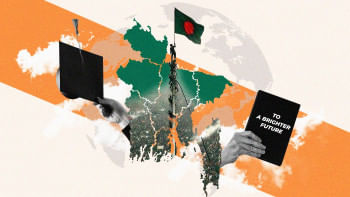
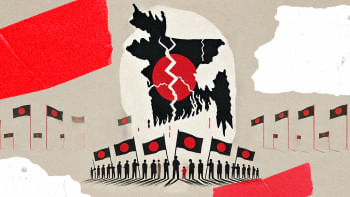


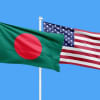

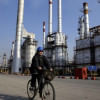
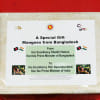
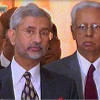


Comments